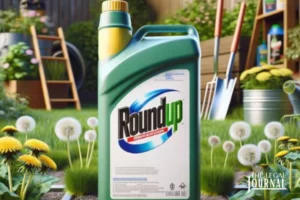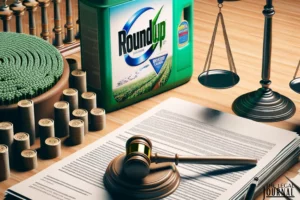Bayer Roundup Trials: Legal Challenges & Implications
In recent years, Bayer AG has faced a significant legal challenge over its Roundup weedkiller, with mounting losses in lawsuits alleging that the product causes cancer. The Philadelphia trial, involving Pennsylvania resident Kelly Martel, has become a focal point in this ongoing legal saga.
Key Points:
- Bayer’s recent legal setbacks in Roundup litigation mark a change in fortune, following a series of plaintiff victories alleging cancer links.
- The Philadelphia trial, involving non-Hodgkin lymphoma claims, tests the strength of plaintiffs’ strategies and court rulings.
- Recent lawsuits emphasize not just glyphosate but also other chemicals in Roundup, suggesting a shift in plaintiffs’ approach.
- Bayer maintains Roundup’s safety, despite the growing legal challenges and mounting public scrutiny.
- The outcome of ongoing and future trials could significantly impact Bayer’s legal and financial position.
As Bayer AG confronts increasing legal challenges with its product Roundup, the focus has shifted to a trial in Philadelphia, where the plaintiff claims the weedkiller caused her non-Hodgkin lymphoma. This case symbolizes a critical juncture in a series of lawsuits that have seen plaintiffs secure larger verdicts against the company, challenging Bayer’s stance on Roundup’s safety.
A pivotal aspect of these lawsuits is the emphasis on regulatory issues and the presence of chemicals other than glyphosate in Roundup. Recent plaintiff strategies have highlighted a “cocktail” of harmful substances, including formaldehyde and arsenic, potentially enhancing Roundup’s carcinogenic risks. These allegations have intensified the scrutiny of Bayer’s product and regulatory practices.
The legal implications of these cases extend beyond the immediate parties involved. They underscore a broader conversation about corporate responsibility, product safety, and the intricacies of scientific evidence in the legal arena. As plaintiffs’ lawyers navigate through a complex mix of scientific studies, regulatory decisions, and legal strategies, the outcomes of these trials could set precedents impacting future product liability cases.
Bayer’s responses to these challenges, including its litigation strategy and public statements, reflect the delicate balance corporations must maintain in defending their products while addressing public and legal concerns. The company’s decision to set aside substantial reserves for litigation indicates a recognition of the seriousness and potential long-term impact of these cases.
As Bayer faces continued legal battles over Roundup, the implications extend far beyond the courtroom. These cases highlight the challenges in navigating the intersection of science, law, and public health. The outcomes of these trials will not only shape Bayer’s future but also influence the broader discourse on corporate accountability and product safety.
Citations:
- Pierson, B. (2023, December 5). “As Bayer confronts mounting Roundup losses, all eyes on Philadelphia trial.” Reuters. Link to source










